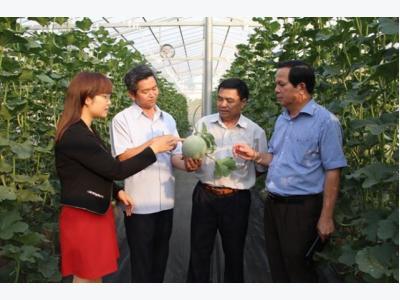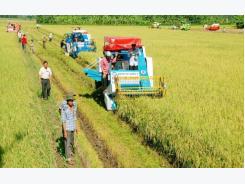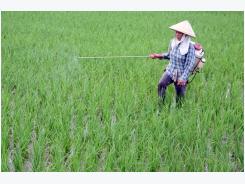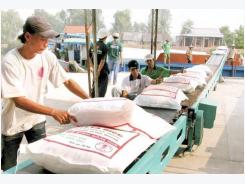Central Highlands high-tech agriculture development faces challenges

Inside a high-tech garden in Dak Lak (Photo: hoinongdan.org)
Hanoi (VNA) – Weak supply chains and the impacts of climate change are hindering efforts by the Central Highlands to grow into a thriving agricultural hub.
The region, earmarked as one of six major economic zones nationwide, has two million hectares of industrial plantations, where key exports of the country, such as coffee and peppercorns, are grown.
Local coffee and peppercorn plantations span respective areas of 576,000 and 53,900 hectares, 89.4 percent and 55.2 percent of Vietnam’s total coffee and peppercorn plantations.
According to the Central Highlands Steering Committee, the region has been developing concentrated production areas for coffee, pepper and rubber products, with basic supply chains emerging.
However, these supply chains mostly end with raw processing, which offers low value.
In fact, only five percent of regional enterprises operate in the agro-forestry sector, most of them run small-scale business with average technologies.
Meanwhile, reclamations of forest land and overexploitation of water for development have reduced the proportion of water in the region. These plus climate change and the El Nino phenomena have resulted in severe droughts.
Last year’s drought was the worst in 20 years. A report released by the Ministry of Agriculture and Rural Development in April 2016 said a total of 160,000 hectares of plants were critically short of water, creating economic losses of about 100 billion VND (4.5 million USD) for each locality among Gia Lai, Kon Tum, Dac Nong, Dac Lak and Lam Dong.
Pushing ahead with high-tech farming is an urgent task for the region to gain more value added and adapt to climate change, Tran Duc Thanh, deputy head of the Central Highlands Steering Committee’s economics department, was quoted by Sai Gon Giai phong.
Nguyen Duc Phong, another official from the committee, noted that sustainable high-tech agriculture is only achievable with practical implementation of State policies in attracting private investment to each locality and by forming strong links among the Government, farmers, scientists, and businesses.
Related news
Tools

Phối trộn thức ăn chăn nuôi

Pha dung dịch thủy canh

Định mức cho tôm ăn

Phối trộn phân bón NPK

Xác định tỷ lệ tôm sống

Chuyển đổi đơn vị phân bón

Xác định công suất sục khí

Chuyển đổi đơn vị tôm

Tính diện tích nhà kính

Tính thể tích ao



 Ha Nam develops smart agriculture
Ha Nam develops smart agriculture  VN agricultural sector urged to modernise technology
VN agricultural sector urged to modernise technology